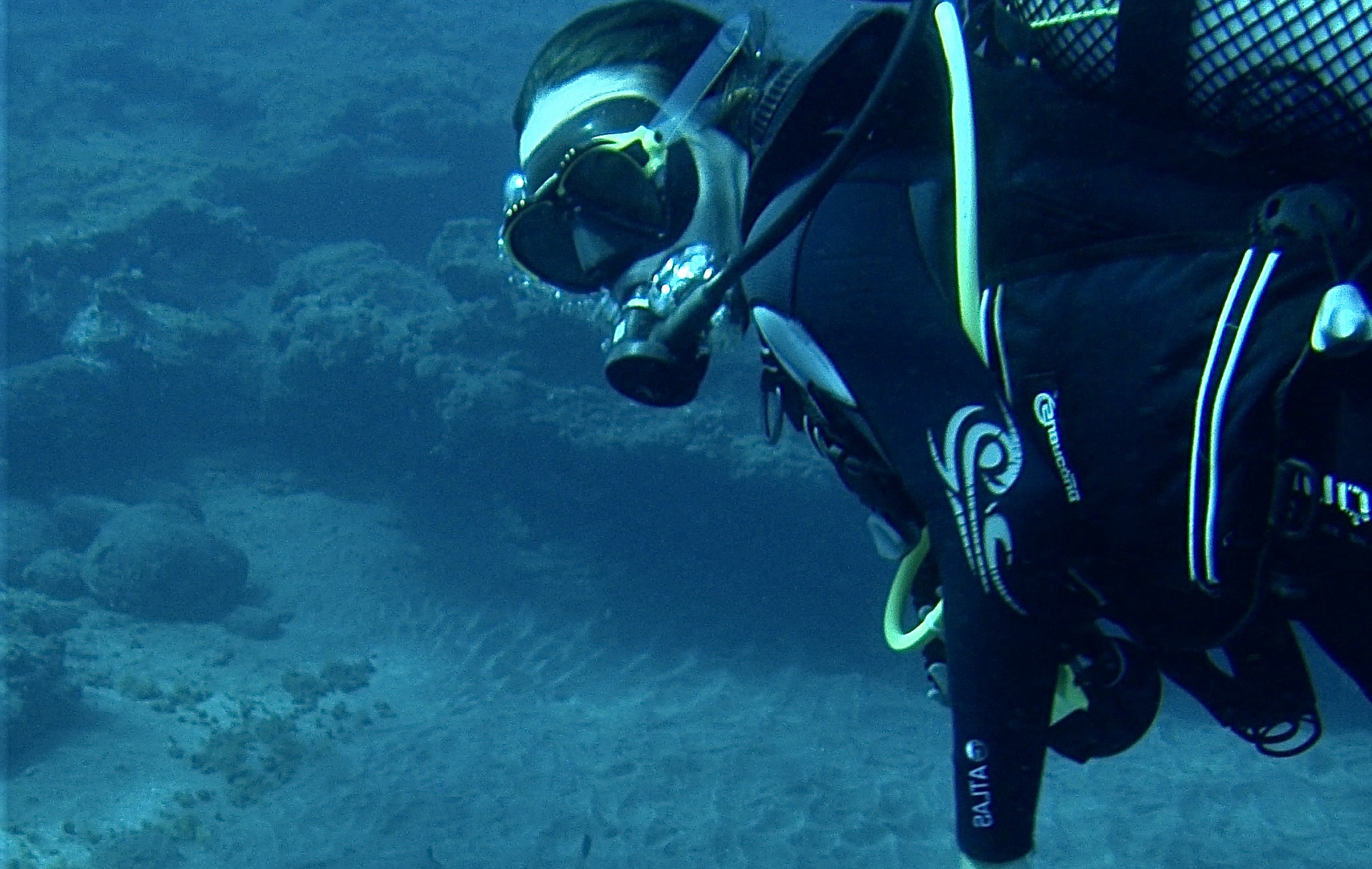Top 5 lessons from my Master’s Dissertation Fieldwork
In brief
Emma Schneck, reflects on the five lessons learned from her MSc Nature, Society and Environmental Governance dissertation fieldwork in Tenerife, Spain.
Overview
Emma Schneck, reflects on the five lessons learned from her MSc Nature, Society and Environmental Governance dissertation fieldwork in Tenerife, Spain.
For me, September 1st felt like a whirlwind.
It was the day I finally submitted my master’s dissertation for my MSc in Nature, Society, and Environmental Governance. With this transformative experience in the rearview mirror, it’s been a great time to reflect on some of the many lessons I’ve learned throughout the whole dissertation research experience. So, without further ado, here are the top 5 lessons I’ve learned from my five-week Master’s fieldwork placement in Tenerife, Spain:
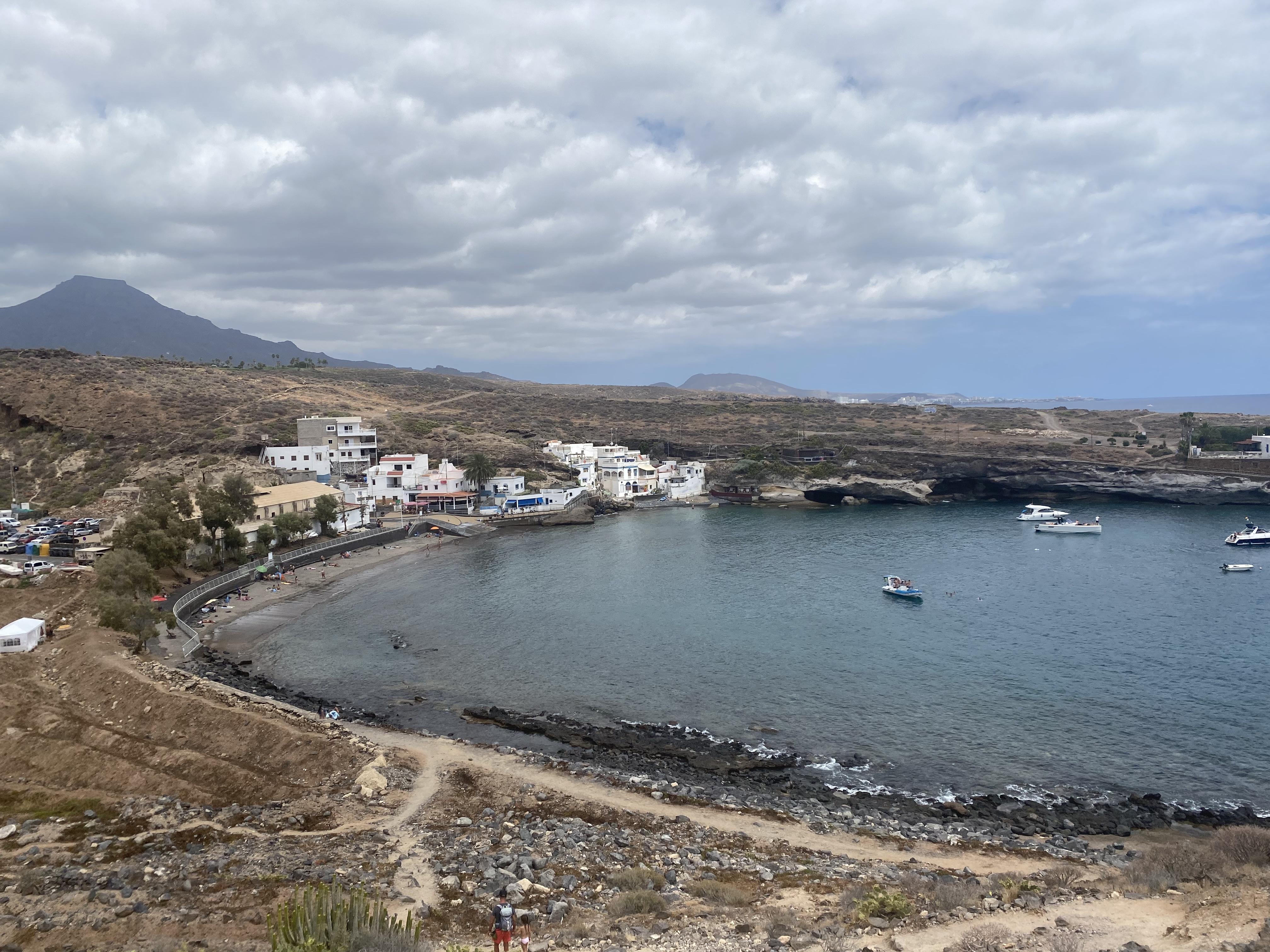
Lesson No.1: Always be ready to pivot
One of the first and most important things that I learned during my fieldwork project is the art of adaptation. Originally, I set out to research a specific diving conservation project based in the tiny bay of El Puertito on the south side of the island. Much to my surprise, after I arrived in Tenerife my research contacts informed me that the project was actually canceled and they had re-focused on a new area of conservation–whale-watching and coastal ecotourism in the Teno-Rasca marine preserve. I was understandably a bit thrown off at this revelation, but fortunately my research contacts were incredibly receptive to have me join on the new project.
Upon learning that the El Puertito project was canceled, I quickly researched as much as I could about the Teno-Rasca marine preserve by looking up as many government and online resources written on its governance. After understanding the background on the conservation projects that these activists had undertaken, I was then able to start the fieldwork process of interviewing participants and experiencing the space as a researcher.
One of the most memorable moments of the whole dissertation project was being invited to join some of the whale-watching tours in the Teno-Rasca. Out on the water off the southern coast of Tenerife, our little whale-watching boat was visited by many pods of resident Pilot whales and dolphins. Our skippers also used a "hydrophone”--a small portable speaker device–to amplify the Pilot whale calls aboard our boat. Seeing them come up for air and play with their calves around the boat and hearing their calls was an emotional experience of connection for everyone on board. Sharing the space with such majestic and peaceful creatures on the ocean and hearing their calls was a really connecting and grounding experience. It was this moment out on the water that made me interested in looking into the emotional aspect of conservation, which led me to incorporate that as a part of my research project.
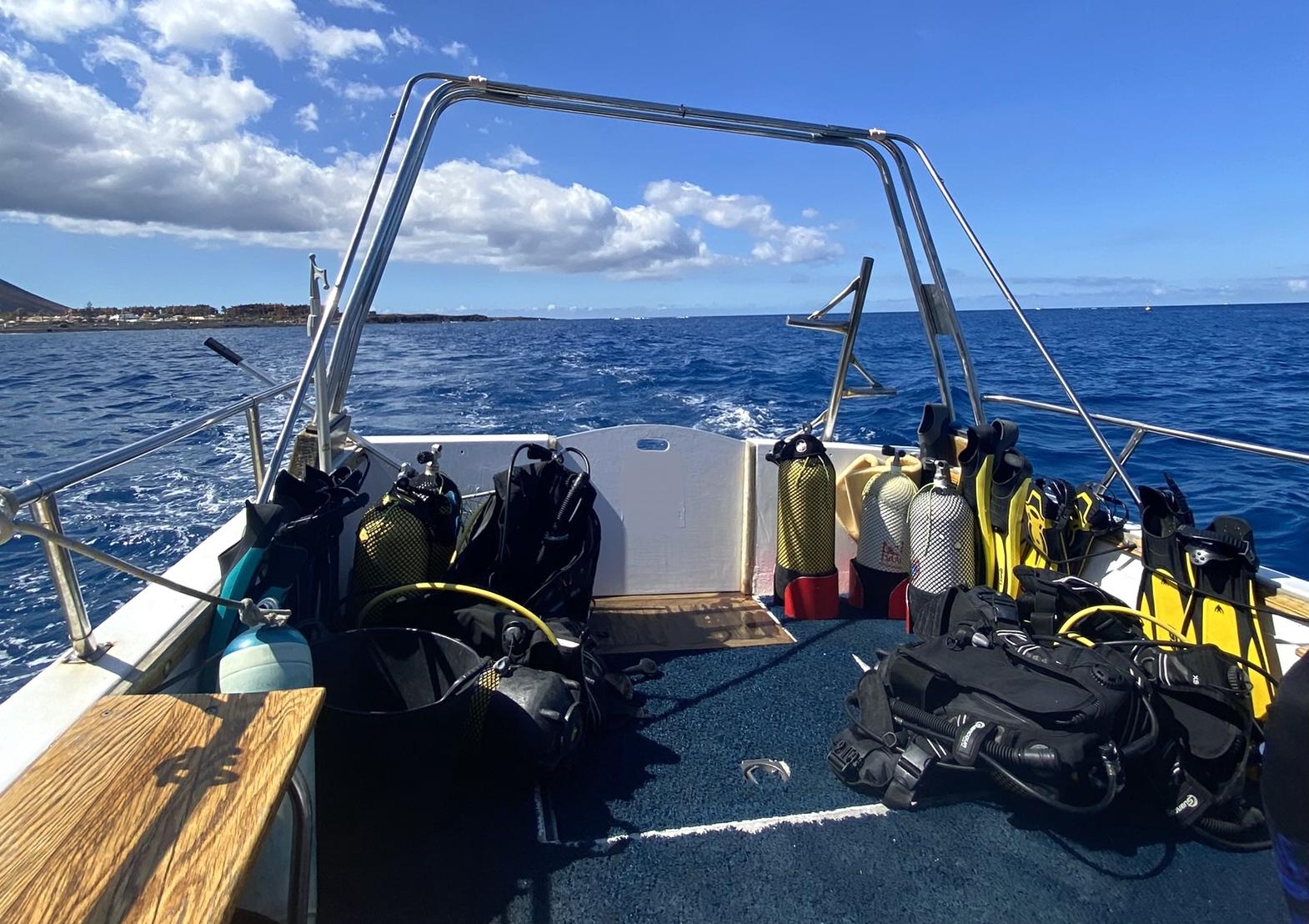
Lesson No.2: Always be prepared for… just about anything
More than anything, it's important to always be prepared in the field. Sometimes, spontaneous interview opportunities popped up without warning (such as aboard a whale-watching boat!), so having all of my interview materials, such as consent forms and participant information sheets ready to go was incredibly helpful.
I also had the privilege to scuba dive throughout the Teno-Racsa to observe coastal seabeds and further understand the state of coastal degradation and conservation. Using scuba diving as a method for my dissertation project offered an excellent chance to explore new and immersive research techniques, which broadened my horizons as a researcher. Of course, I had to organize this aspect of my project in advance, as it required Risk Assessment approval. Fortunately, my research contacts in Tenerife were also my dive instructors, so we could easily adapt our research plans to better fit the new research project.
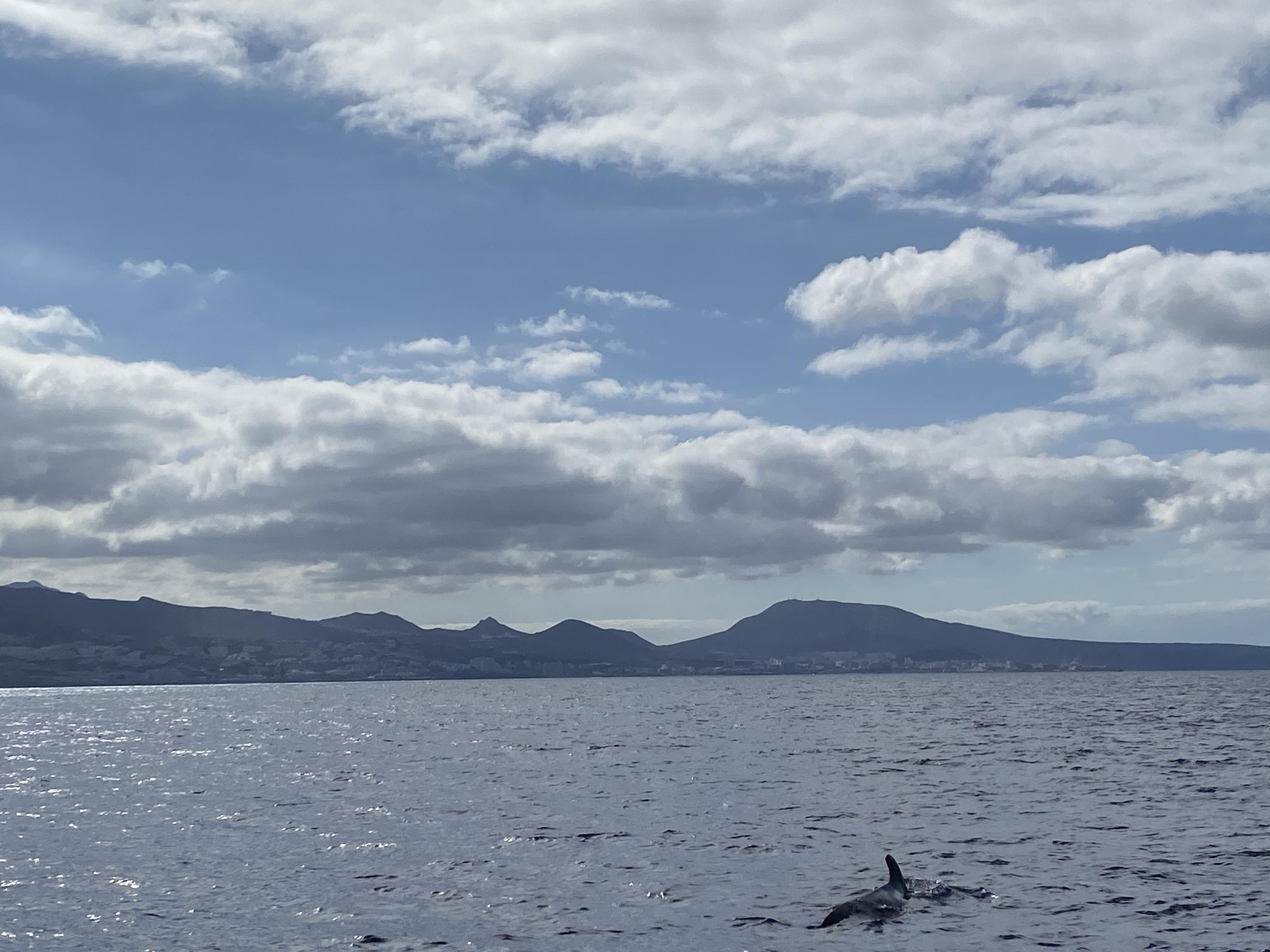
Lesson No.3: The Ocean will test you
For me, connecting with the ocean through whale-watching and scuba diving was one of the most rewarding aspects of the fieldwork project. It helped me better understand the effects of tourism overdevelopment in the South of Tenerife, as well as the unique perspectives of my research participants.
Working on the ocean tested my abilities to be flexible and adaptive to changing conditions and tides. On some days that we planned to go out on the water the ocean conditions were too difficult to traverse, which meant that I had to readjust interview schedules and plans for the week. Being adaptable to natural unforeseen conditions was really helpful for balancing the needs of the fieldwork project.
Lesson No.4: Be present
One of the most important lessons from my fieldwork was that being fully and wholly present in the field is very important. By ‘being present’, I mean more than just being physically there. The whole dissertation can be a very consuming process, and it's really important being mentally prepared for a quite immersive, exhausting experience. There were many days that I came back to my hotel and immediately collapsed from exhaustion, even on days I was only conducting interviews in offices. Making sure to prioritize rest and both physical and mental health is extremely important when undertaking such immersive research projects.
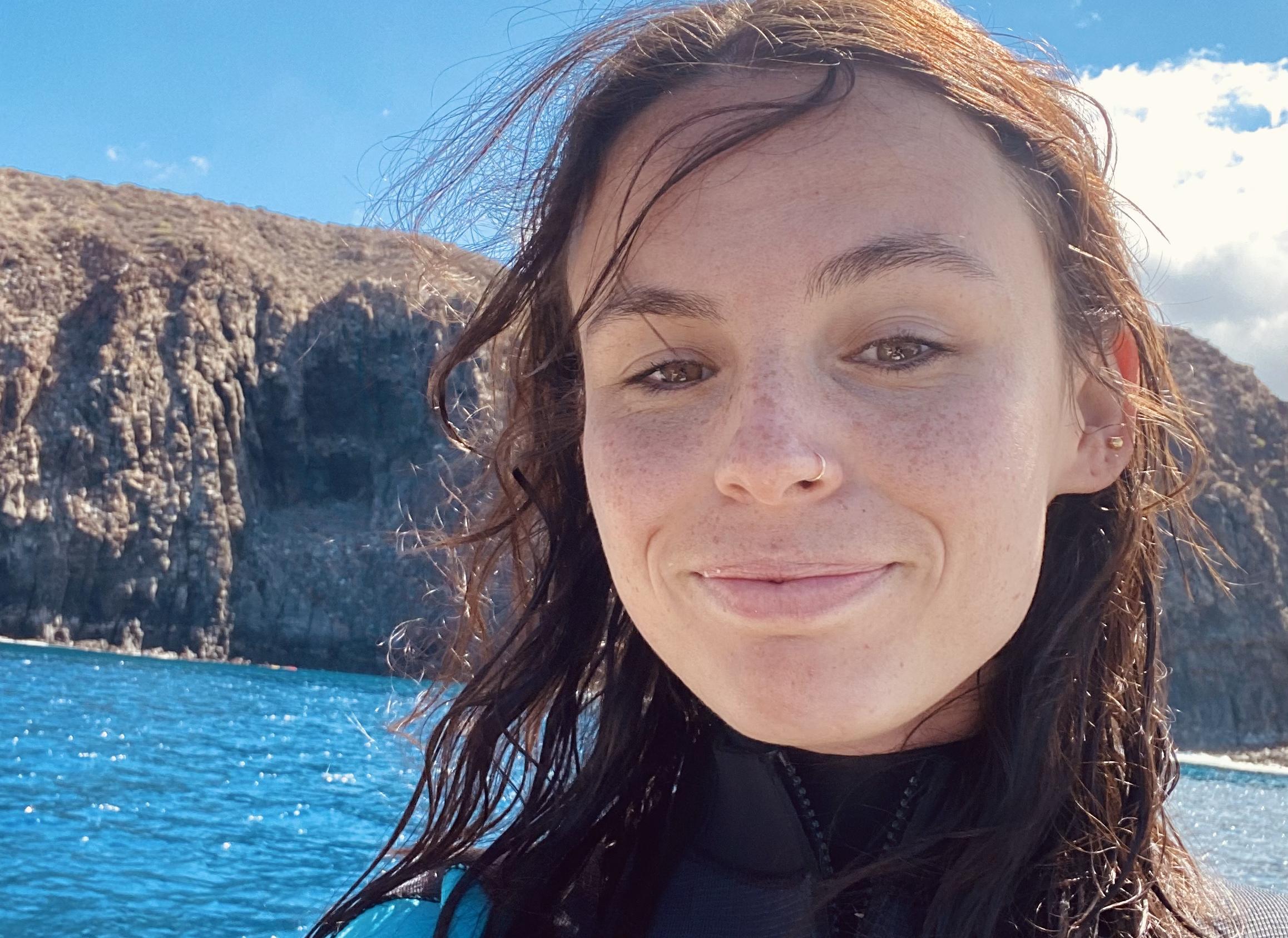
Lesson No. 5: It will change you (hopefully for the better)
Dissertation field work experience changed my perceptions of research. More than anything, I found that qualitative research is incredibly connected to your experience as a researcher. It is just as important to pay attention to how you interact with your surroundings and space as rather than any data or ‘findings’ you collect. Understanding how my research observations and conversations with experts made me reflect on my project and conservation as a whole was very impactful, and allowed me to learn much more about myself as a researcher.
My fieldwork experience at SoGE was an enlightening journey of discovery, adaptation, and growth. It taught me that active participation and a readiness to embrace change are the cornerstones of successful fieldwork. As I look back on this remarkable chapter of my academic journey, I'm grateful for the profound impact it has had on my research perspective and personal growth.
Pressing ‘submit’ in the exam portal was a thrilling experience that marked the end of my degree and months of planning, researching, and writing my master’s dissertation. I was so thankful for the group of local activists who generously helped connect me to their work in Tenerife, and provided me with so much insight into the world of marine conservation. All and all, it was the most challenging aspect of my master’s degree, but also the most rewarding.
________________________________________________________________
Emma Schneck
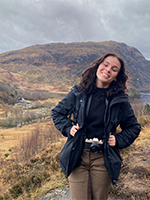 Emma Schneck (she/her) is a student on the MSc Nature, Society and Environmental Governance course and one of the School of Geography and the Environment’s Science Writers. In addition to her coursework, Emma enjoys working as one of the head editors for the Anthroposphere—a multimedia climate magazine based in the University of Oxford. Her main interests include climate justice, climate-induced migration, environmental politics, and small island state representation in the UNFCCC. Her most recent dissertation research explores ocean conservation governance and liminal political movements in Tenerife, Spain.
Emma Schneck (she/her) is a student on the MSc Nature, Society and Environmental Governance course and one of the School of Geography and the Environment’s Science Writers. In addition to her coursework, Emma enjoys working as one of the head editors for the Anthroposphere—a multimedia climate magazine based in the University of Oxford. Her main interests include climate justice, climate-induced migration, environmental politics, and small island state representation in the UNFCCC. Her most recent dissertation research explores ocean conservation governance and liminal political movements in Tenerife, Spain.
The School of Geography and the Environment’s Student Writing Team

Our SoGE student writing team is a vibrant community where students with a passion for science communication can thrive and learn. Whether an undergraduate or pursuing a DPhil in Geography, our student writers contribute valuable insights, fresh ideas, and a passion for science communication that adds vibrancy to our community. Find out more.
In brief
Emma Schneck, reflects on the five lessons learned from her MSc Nature, Society and Environmental Governance dissertation fieldwork in Tenerife, Spain.


